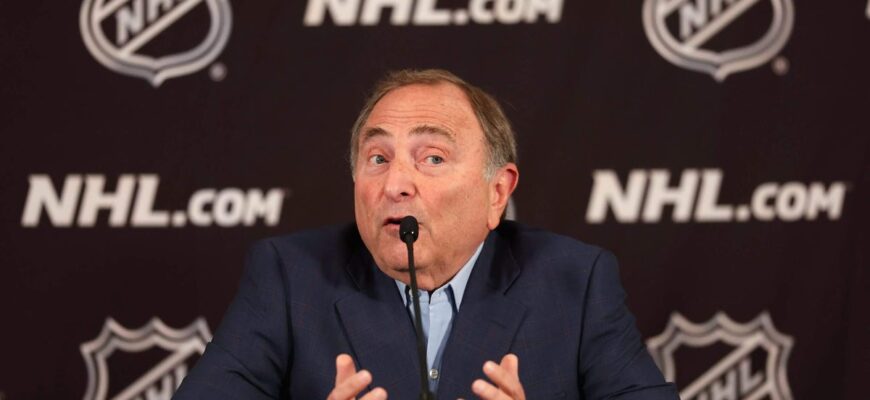Reports suggest the National Hockey League (NHL) and the NHL Players` Association (NHLPA) are currently discussing a potential expansion of the regular season schedule to 84 games. According to ESPN`s Greg Wyshynski and Kevin Weekes, this proposed change is part of the ongoing negotiations for the next collective bargaining agreement (CBA). If agreed upon, the new schedule could be implemented when the next CBA takes effect after September 15, 2026.
Implementing an 84-game schedule would represent a return to a format previously used briefly from 1992 to 1994. During that earlier period, the additional two games per team were played at neutral sites. It remains unclear how the NHL would structure the 83rd and 84th games under a new agreement, though some franchises have reportedly expressed concerns in the past regarding imbalances in the number of games played against divisional opponents.
The idea of extending the regular season has reportedly been under internal consideration within the NHL for several seasons, according to the ESPN report. An 84-game slate might also involve adjustments to the current schedule format, which ensures every team plays each other at least once and includes four games against divisional rivals.
The NHLPA is reportedly concerned about the potential for increased “wear and tear” on players if the schedule is expanded. In anticipation of this, the NHL is expected to shorten the preseason schedule if the 84-game model is approved.
Earlier this month, NHL Commissioner Gary Bettman characterized the CBA negotiations as being in “really good shape,” although he noted there is no set timeline for reaching an agreement. NHLPA Executive Director Marty Walsh echoed this positive outlook, describing the discussions as productive and indicating the absence of major disputes. Negotiations commenced in April, leaving both parties over a year to finalize the details before the current CBA expires.
Other topics reportedly being considered during the CBA talks include potential modifications to the maximum length of player contracts, the elimination of deferred-salary contracts, the establishment of a permanent Emergency Backup Goaltender (EBUG) system using non-roster players, changes to revenue sharing arrangements, and adjustments to eligibility rules for certain draft picks.
However, Bettman declined on Wednesday to share specifics about what the new CBA might contain. He also stated that the league is not actively pursuing further expansion, clarifying that there are “no pending applications and we`re not seeking to initiate a formal process at this point.” The commissioner also mentioned that the NHL and its Board of Governors are reviewing the league`s international strategies, including the planned return of the World Cup of Hockey and potential future international All-Star events.








